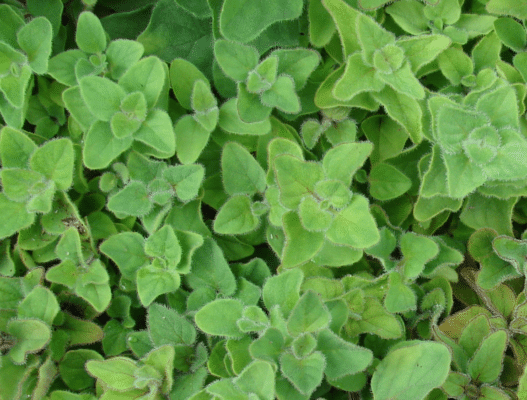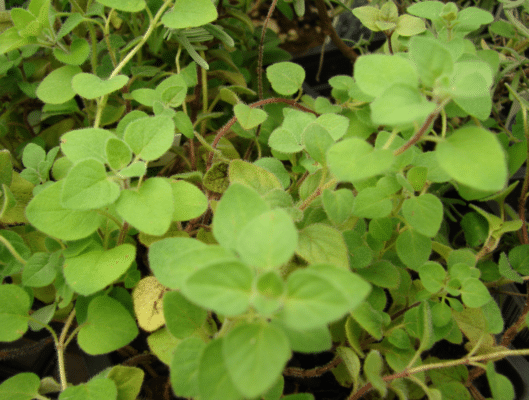Oregano Nutritional Highlights: A Rich Source of Essential Minerals, Vitamins, and Beneficial Compounds
Important to Know
Oregano, Mexican Mint (also known as Mexican Oregano), and Caraway plants are distinct herbs, each with unique flavors and characteristics. Oregano, part of the mint family, offers a robust, Mediterranean-inspired taste. Mexican Mint, often confused with oregano due to its name, provides a citrusy, yet earthy flavor, contributing to the distinctiveness of Mexican cuisine. On the other hand, Caraway, belonging to the carrot family, boasts a warm, anise-like flavor, making it a popular spice in various culinary traditions. Understanding the differences among these plants enhances culinary experiences and prevents confusion in the kitchen.
Origanum vulgare, also known as oregano, has many common names in India: Maruga, Mirzanjosh, Mridumaruvamu, Sathra. I do not know the exact name. I could not get the name in Tamil.
Definition and Origin
Definition:
Oregano leaves are the dried or fresh leaves of the oregano plant, scientifically known as Origanum vulgare. This perennial herb belongs to the mint family and is characterized by its tiny leaves that possess a robust flavor and a pungent aroma. Oregano has been utilized for thousands of years in culinary applications and traditional medicine. It is a versatile herb with a distinct taste, commonly associated with Mediterranean cuisine.
Usage:
Oregano leaves can serve as a substitute for ground coriander, introducing an earthy and minty flavor to recipes. They can be combined with cumin or included in herb mixtures to enhance overall flavors. In situations where cilantro is unavailable, dried oregano leaves can be used as an emergency substitute. The herb is frequently employed in both fresh and cooked salsa, as well as in meat mixtures for burritos and tacos, enchilada sauce, and classic braised pork dishes. Mexican oregano, in particular, plays a crucial role in the preparation of ropa vieja, a slow-cooked and shredded beef dish in Mexican cuisine.
Origin:
Oregano, scientifically known as Origanum vulgare, is a perennial herb indigenous to the Mediterranean region and western Asia. Although it is native to the Mediterranean, oregano is cultivated in various regions worldwide, including Mexico, Italy, Turkey, the Dominican Republic, and Greece. In India, it is found in the temperate Himalayan region spanning from Kashmir to Sikkim. Oregano is known for its hardiness, thriving in warm garden soils, and has become a widely used herb in diverse culinary traditions across the globe.

Oregano leaves are petite, possessing an oval to round shape and emitting a distinct aroma. Covered in glandular trichomes (plant hairs), these leaves measure approximately 3 cm in length. Displaying hues ranging from light green to greenish-brown, the leaves feature crenate to crenate–serrate margins, typically remaining whole, though occasionally exhibiting mildly toothed edges.
Oregano Nutrients
Minerals:
Phosphorus: Is a crucial mineral with multifaceted roles in the body. Serving as a fundamental building block, it is a key component of bones, teeth, and cell membranes. Additionally, phosphorus plays a vital role in enzyme activation and contributes to maintaining a normal blood pH range.
Sodium: Is on the other hand, is an essential nutrient that plays a pivotal role in sustaining fluid and electrolyte balance, as well as regulating blood pressure. Functioning as an electrolyte mineral, sodium is integral for the proper operation of nerves, muscles, and various other tissues in the body.
Calcium: Essential for bone health and muscle function.
Magnesium: Supports muscle and nerve function, as well as immune system health.
Iron: Important for oxygen transport in the blood and overall energy metabolism.
Potassium: Essential for heart health and maintaining proper fluid balance.
Selenium: It is an essential trace mineral crucial for various bodily processes. It is naturally present in soil, water, and certain foods.
Vitamins:
Vitamin K: is a group of compounds that contribute to bone formation and blood clotting in the body. The two primary and crucial compounds within this group are vitamin K1 and vitamin K2.
Vitamin A: It plays a vital role in supporting normal vision, immune system function, reproduction, and the processes of growth and development. Additionally, vitamin A contributes to the proper functioning of the heart, lungs, and other essential organs in the body.
Vitamin C: A powerful antioxidant that boosts the immune system and promotes skin health.
Vitamin E: Another antioxidant that helps protect cells from damage.
Other Beneficial Compounds:
Folate: A B-vitamin important for DNA synthesis and cell division.
B-vitamins: Including B1 (thiamine), B2 (riboflavin), B3 (niacin), B5 (pantothenic acid), B6 (pyridoxine), and B9 (folate), which play crucial roles in energy metabolism.
Lutein and Zeaxanthin: Carotenoids that support eye health and act as antioxidants.
Thymol and Carvacrol: Compounds with antioxidant and antimicrobial properties, contributing to the herb’s health benefits.
Incorporating oregano into your diet not only adds flavor to your meals but also provides a range of essential nutrients that contribute to overall health and well-being.
Oregano offers a range of health benefits, thanks to its rich nutritional profile and unique compounds. Here are some potential benefits of oregano:
Antioxidant Properties: It contains compounds like thymol and carvacrol, which act as antioxidants, helping to neutralize free radicals in the body and protect cells from oxidative stress.
Anti-Inflammatory Effects: The anti-inflammatory properties of oregano may contribute to reducing inflammation in the body, potentially aiding in conditions associated with inflammation.
Immune System Support: Oregano is a source of vitamins, including vitamin C, which is known to boost the immune system. The herb’s antimicrobial properties may also contribute to overall immune health.
Bone Health: Minerals like calcium magnesium, and phosphorus in oregano play a role in supporting bone health and may contribute to preventing bone-related issues.
Digestive Health: Oregano has traditionally been used to aid digestion. It may help soothe digestive issues and contribute to a healthy digestive system.
Respiratory Health: Its antimicrobial and anti-inflammatory properties may be beneficial for respiratory health.
Antimicrobial Action: Oregano has natural antimicrobial properties that may help combat certain bacteria and fungi, contributing to overall microbial balance in the body.
Rich in Nutrients: It is a nutrient-dense herb, providing essential vitamins and minerals that support overall health and well-being.
Potential Anti-Cancer Properties: Some studies suggest that the compounds in oregano may have anti-cancer properties, though more research is needed in this area.
Culinary Versatility: Beyond its health benefits, oregano adds flavor to dishes, making it a delicious and nutritious addition to various cuisines.
While oregano can be a healthy addition to your diet, it’s essential to consume it as part of a balanced and varied diet for maximum benefits. If you are a patient with health conditions it is better to consult your Doctor.

